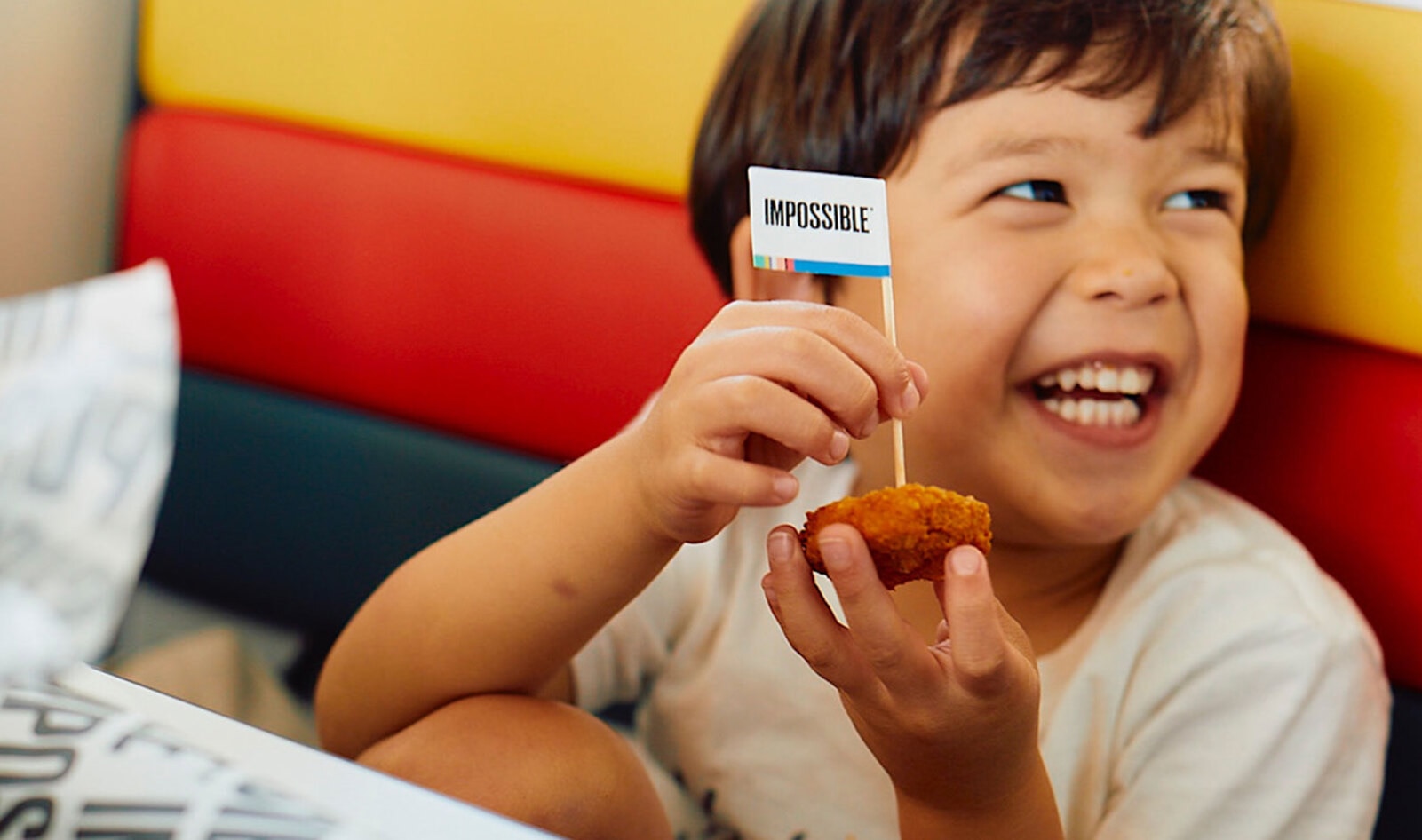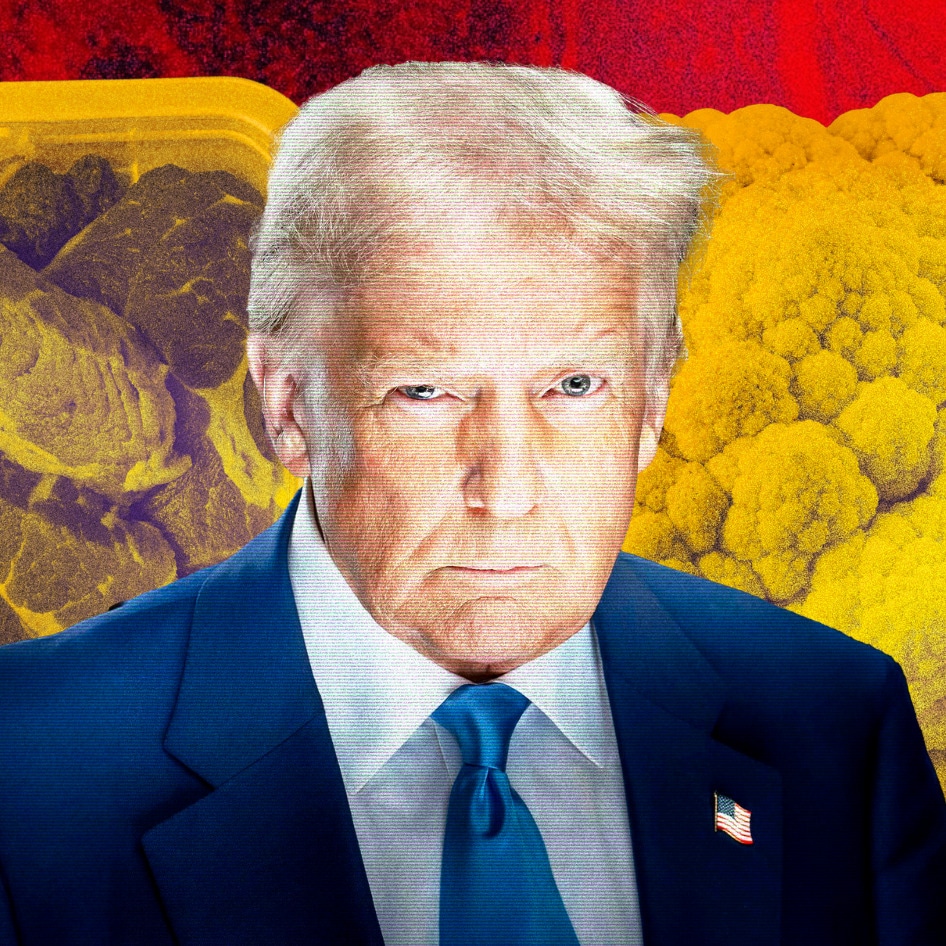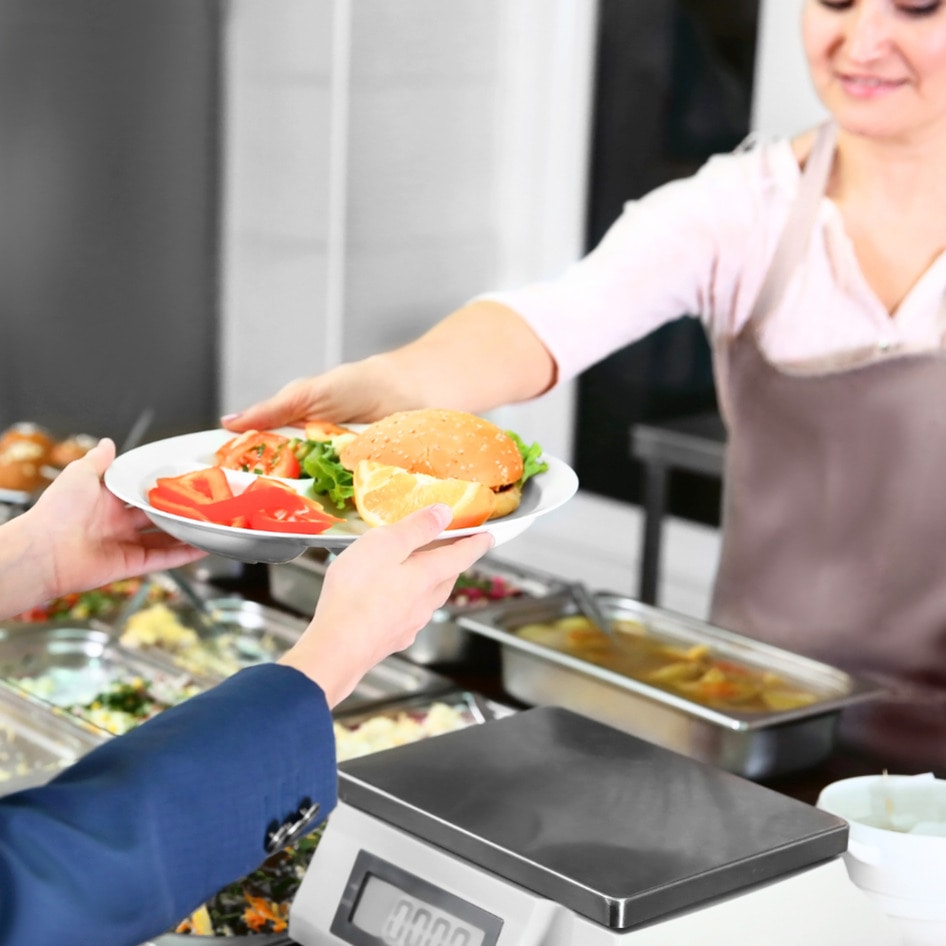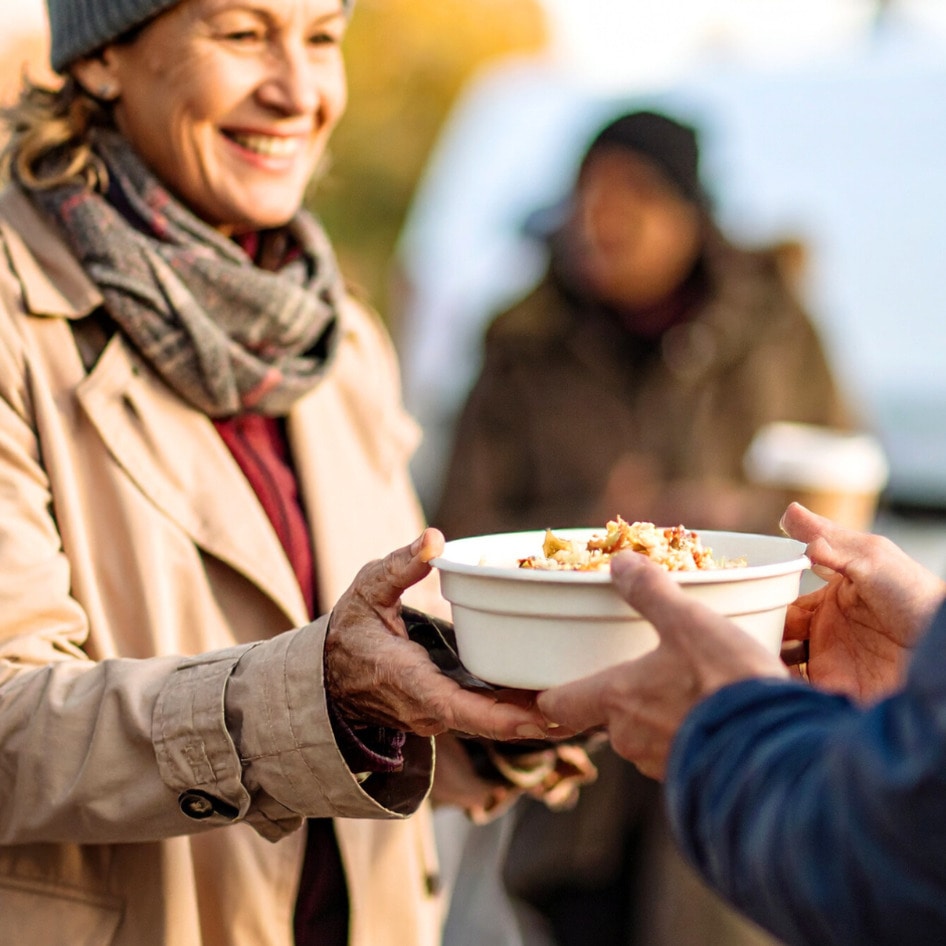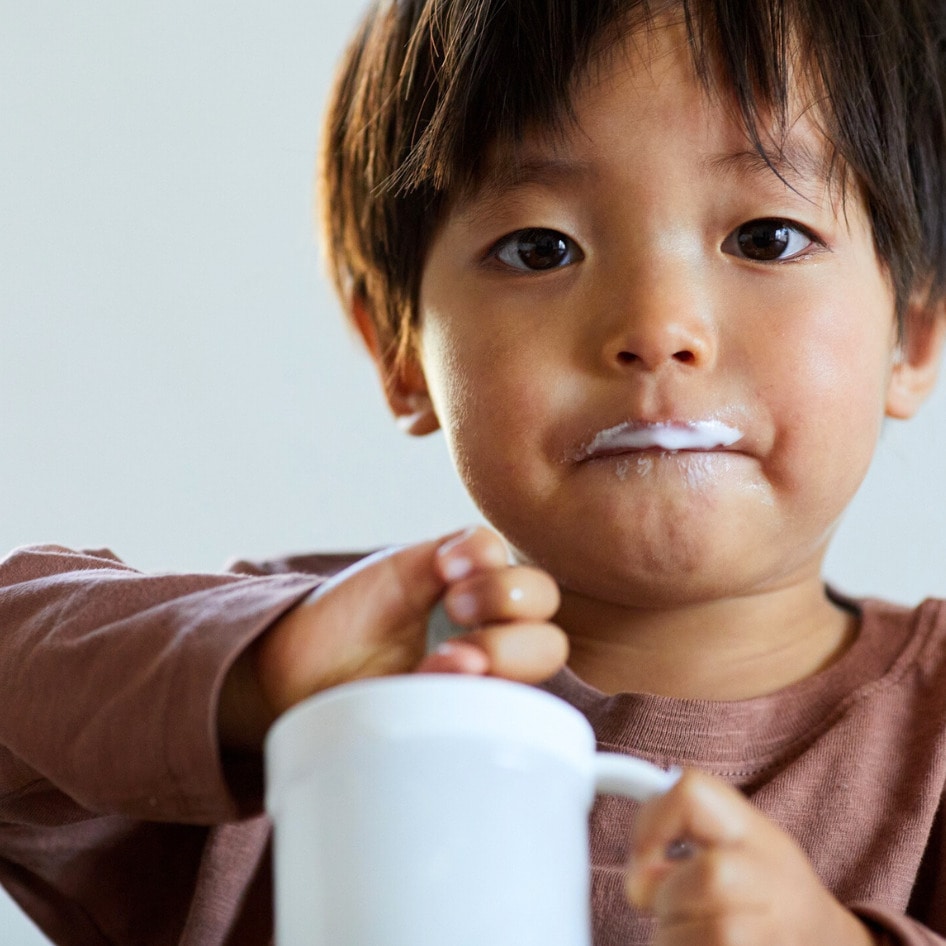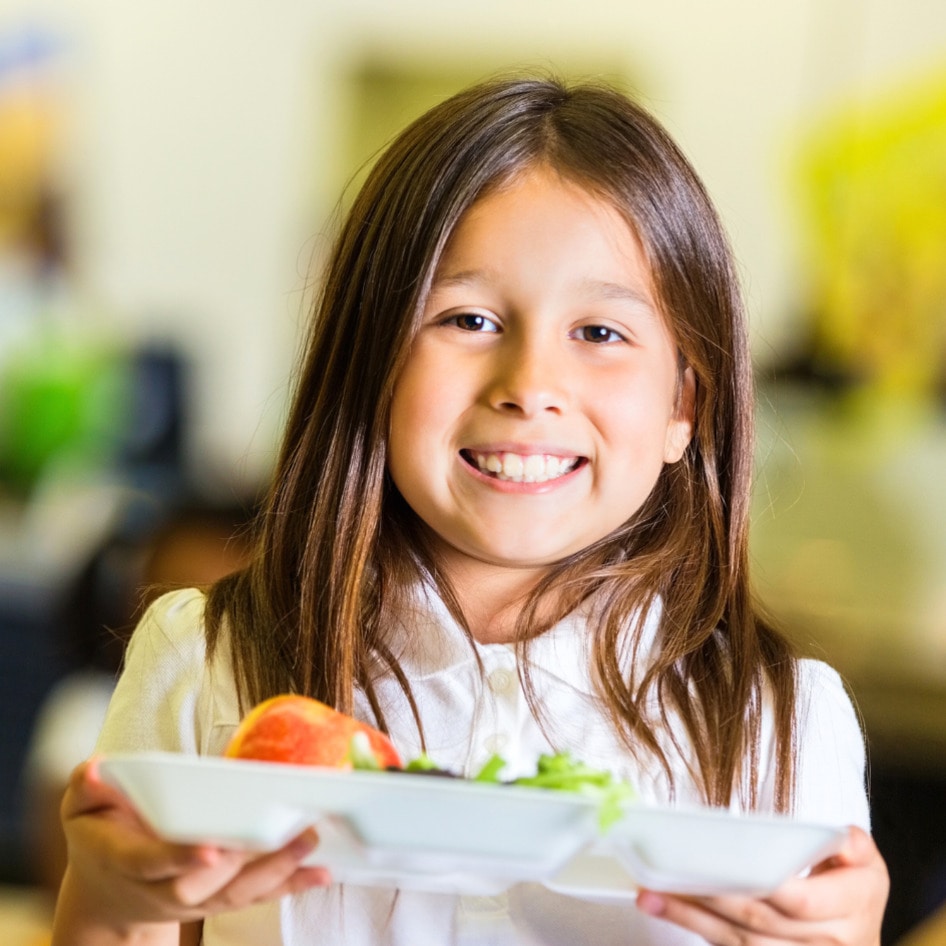What if learning about environmental science and sustainability was fun, engaging, and easy? This baseline served as the inspiration behind “Plate to Planet,” an interdisciplinary module for K-12 educators created by plant-based company Impossible Foods together with educational nonprofit Beyond Benign.
The program was designed to help children understand the impact the global food system has on the climate crisis and inspire them to pursue higher education and/or careers in green science. The program was developed with a team of educators and piloted by a group of teachers in the 2021-2022 school year.
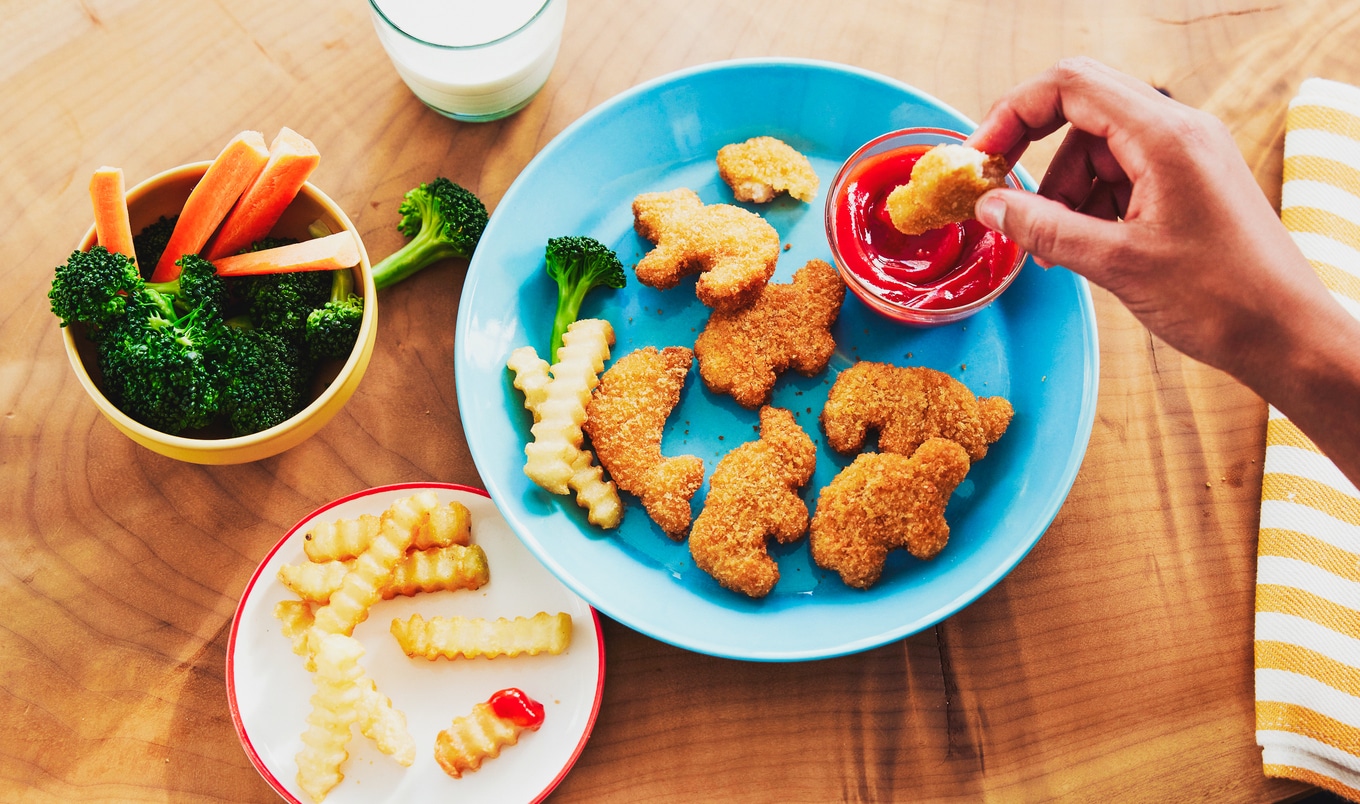
Impossible Foods
“We are on a mission to create a more sustainable global food system and reverse the negative impacts of climate change,” Laura Kliman, Impossible Foods Director of New Product Development, tells VegNews. “To do so, it’s imperative that we create the most delicious and nutritious plant-based meat products while also educating people about the connection between what is on their plate and its impact on the planet.”
Connecting the dots between climate change and animal agriculture
So what can children learn from the “Plate to Planet” lessons? The program looks at sustainability from a food system perspective and tasks kids with learning the impact their food choices have on the world around them.
Kate Anderson, Beyond Benign’s Director of K-12 Education, tells VegNews that teaching children about how food choices are tied to the climate crisis, particularly at a young age, is vital. “The sooner the better is true for developing all good life-long habits and understanding,” Anderson says.
“Kids are acutely aware of the environmental challenges of today and want to act in ways that are not as harmful to the environment,” Anderson says. “When children understand the impact of their own food choices early, it can help to plant a seed for their own decision making now and into the future.”
The four-lesson module is designed to be hands-on and interactive with topics such as biodiversity taught by taking kids outside and challenging them to engage with their environments.
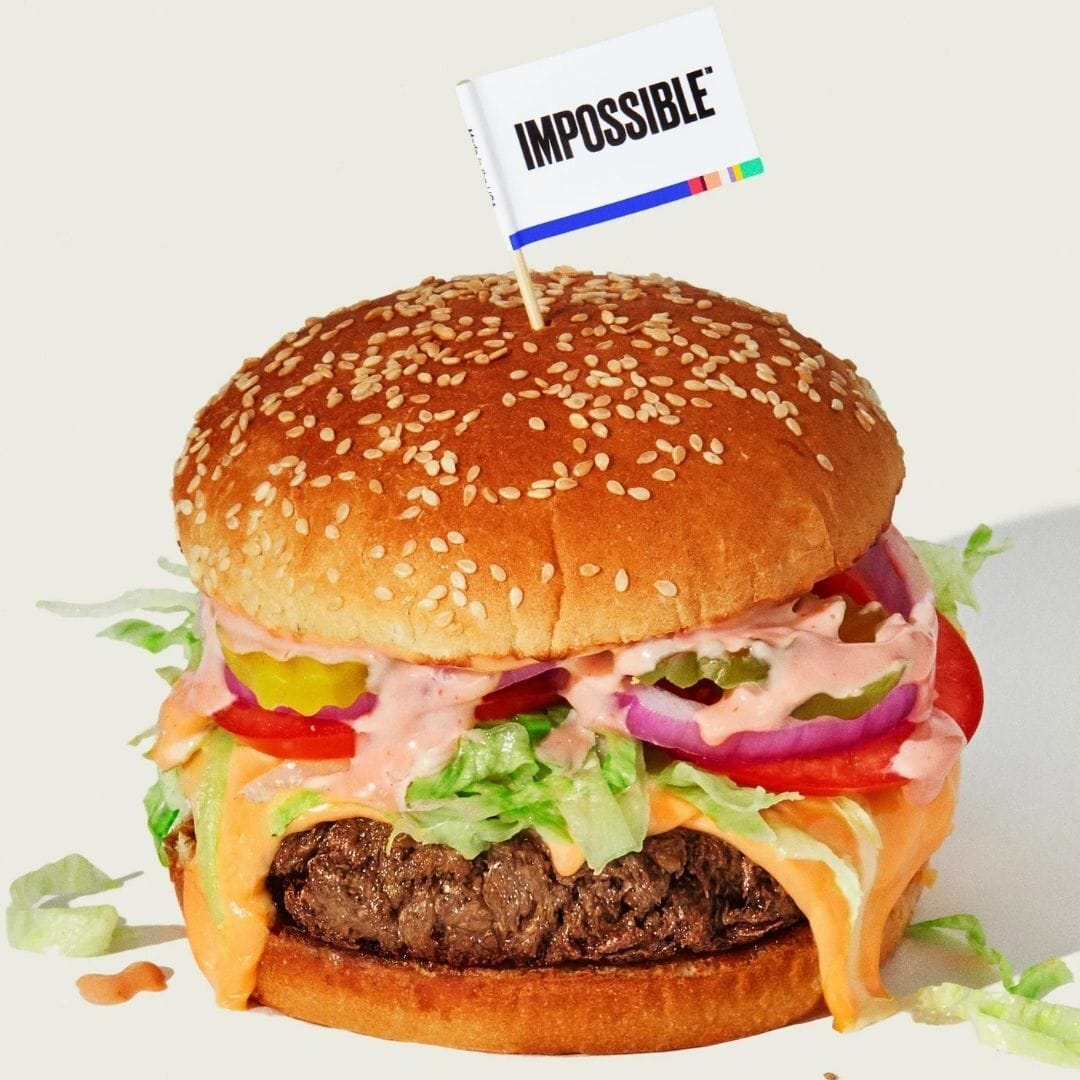 Impossible Foods
Impossible Foods
Using fun tools like hula hoops, children learn about how plant-based meats are less environmentally damaging than their animal-derived counterparts. They are also challenged to think about meat production on a global scale and discuss solutions—one of which is “what if hamburgers were made from plants instead?”—with fellow students.
“The curriculum we helped develop is special in that it puts students in the driver’s seat,” Kliman says. “The lessons encourage them to become scientists and come up with innovative solutions to real-world problems, creating an understanding of the impact that our everyday choices have on the environment.”
Children are also introduced to fermentation and food science in a novel way. In one lesson, children isolate a slimy protein from a Chinese yam and observe how the properties of the protein differ from those of the yam itself.
“This is my favorite part of the curriculum because it provides that ‘aha’ moment in which students understand that food is science, and we can use plant-based ingredients in really creative ways to solve scientific problems, all while having fun,” Kliman says.
Education for a climate-conscious generation
While the lessons are designed to be fun, the “Plate to Planet” program is built around a critical question: how will we sustainably feed 9 billion people by 2030?
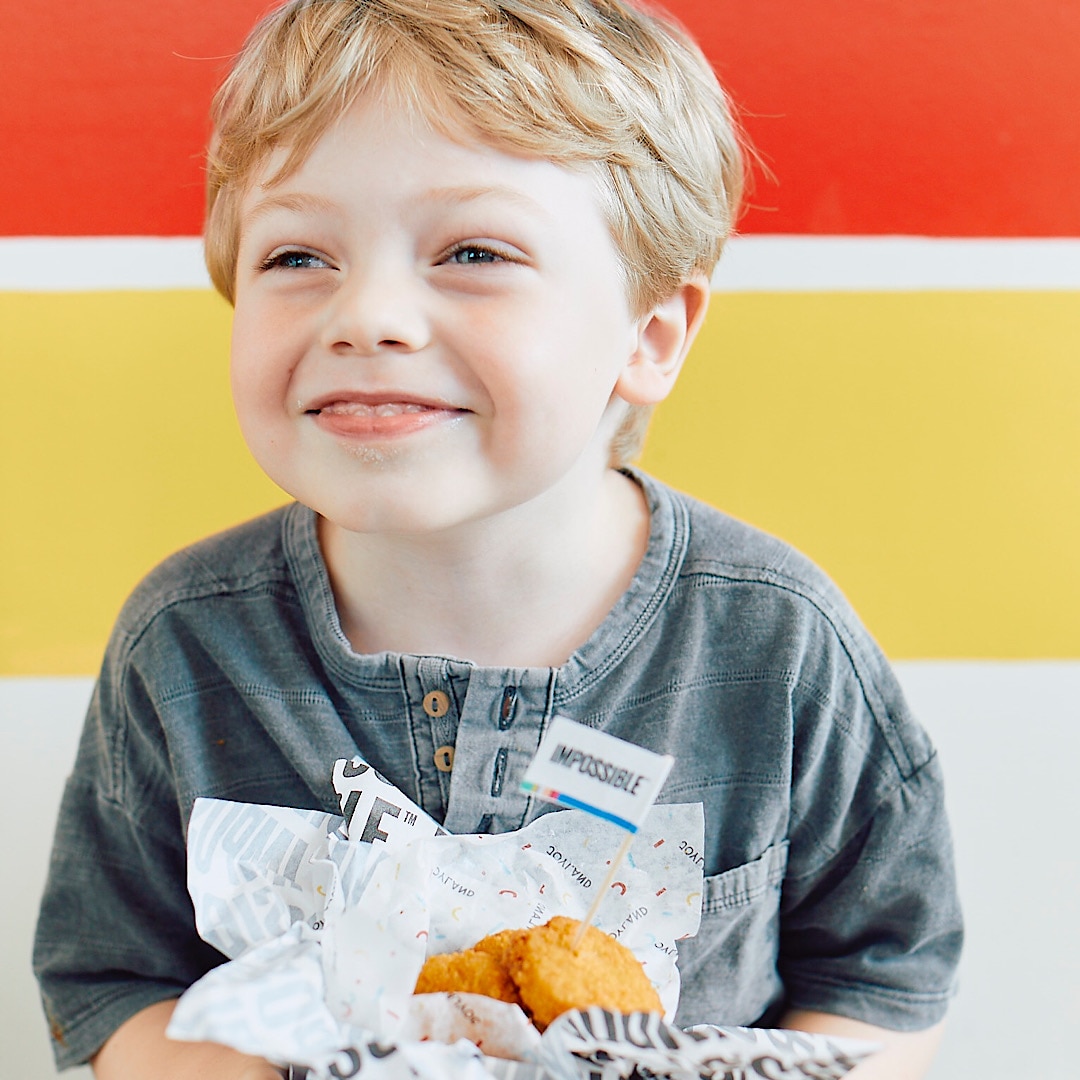
Impossible Foods
Last year, to better understand if children are making the connection between food production and environmental impact, Impossible Foods hired a third-party research team to survey 1,200 children between the ages of five and 18. The resulting “Kids Rule” report found that 80 percent of the children surveyed were aware about climate change, with awareness increasing with age.
However, the report identified a gap in education as a majority of the children ranked animal agriculture—which accounts for 14.5 percent of greenhouse gas emissions—as the smallest contributor to the climate crisis. The vast majority of children (99 percent) also reported that they consumed animal meat once per month with 97 percent reporting they consume it once per week.
“There really isn’t much education at all at the K-12 level around the role of the food system in climate change, so we’re building from the ground up,” Kliman says.
“The Plate to Planet curriculum is so important because it provides a way for students to engage with real-world challenges—like climate change and its connection to our food system—to learn foundational scientific concepts and standards,” Kliman says.
On the bright side, the majority of children (9 out of 10) surveyed for the “Kids Rule” report responded that it was important for them to take action against climate change and 73 percent of children felt as if they had the power to do something to either slow or stop it.
“Students are more curious than ever about what we’re doing to save the planet and how they can help. We want to be part of the movement that gets kids excited about STEM and engaged in being part of the solution,” Kliman says. “Elementary school education is particularly important because around the age of eight, kids start to really think about what they want to do when they grow up, connecting what they learn in school to the real world. Early education is critical to setting the tone and showing students that science is fun and important instead of scary and difficult.”

With education tools like the “Plate to Planet” program, both Beyond Benign and Impossible Foods see an opportunity to close this gap and empower the next generation of climate activists.
And the program was created to keep the conversation around green science alive both in the classroom and outside of school. “The curriculum has been designed to spark curiosity and open the door to discuss complex environmental challenges through hands-on lessons,” Anderson says. “The curriculum is most successful when students are coming home and talking about food as science and the environmental impact of food.”
Impossible’s plant-based food on school menus
Last year, Impossible Foods’ flagship Impossible Burger and Impossible Sausage breakfast patties secured a CN label—an accreditation from the United States Department of Agriculture that allows the plant-based company’s meats to be served in K-12 schools nationwide.
Currently, nearly 500 schools across the United States already serve the CN-labeled Impossible Sausage breakfast patties and ground Impossible Beef, and five of the country’s largest 10 school districts have expressed interest in featuring Impossible Foods in their cafeterias.
“We see the cafeteria as a great opportunity to educate our children about how the food they eat impacts their health and the planet, but ultimately our goal is to provide students a nutritious, plant-based alternative to their favorite meals that would otherwise be made with animal meat,” Kliman says.
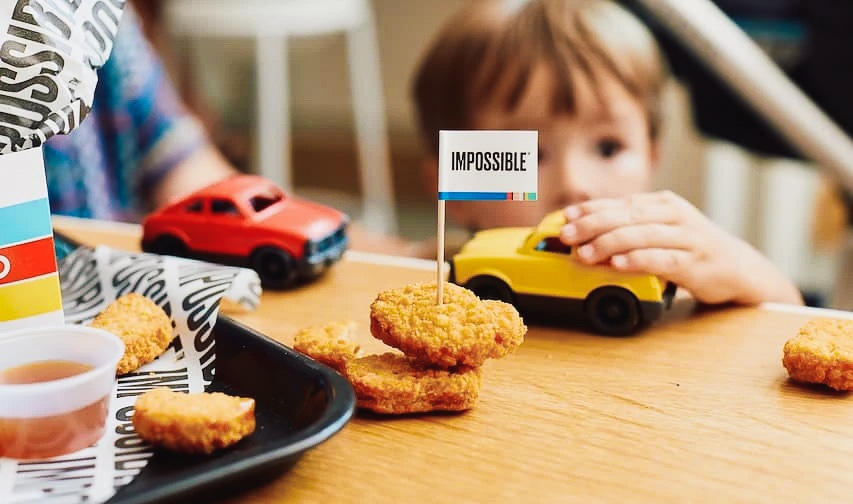 Impossible Foods
Impossible Foods
Earlier this year, California earmarked $700 million for improving its school lunches, particularly by supporting the proliferation of plant-based school meals. Shortly after this news, Impossible Foods announced at the School Nutrition Association Annual Conference in Orlando, FL that it would release two new items specifically crafted for school cafeterias: pre-cooked Impossible Burgers and whole-grain Impossible Chicken Nuggets.
Together with the new “Plate to Planet” program, Impossible Foods is working toward a future where children can have access to both education about the global food system and the sustainable foods that can help mitigate the climate crisis.
“We believe that school districts are uniquely positioned to take initiative on making plant-based food more accessible—especially considering their students are part of the most climate-conscious generation in history,” Kliman says.
“Serving plant-based products is such an easy way for schools to do their part in combating climate change, and also gives the students something to be really proud of—that their school and their community are actively participating in this bigger movement to fight against climate change,” Kliman says.
For the latest vegan news, read:
JUMP TO ... Latest News | Recipes | Guides | Health | Subscribe

